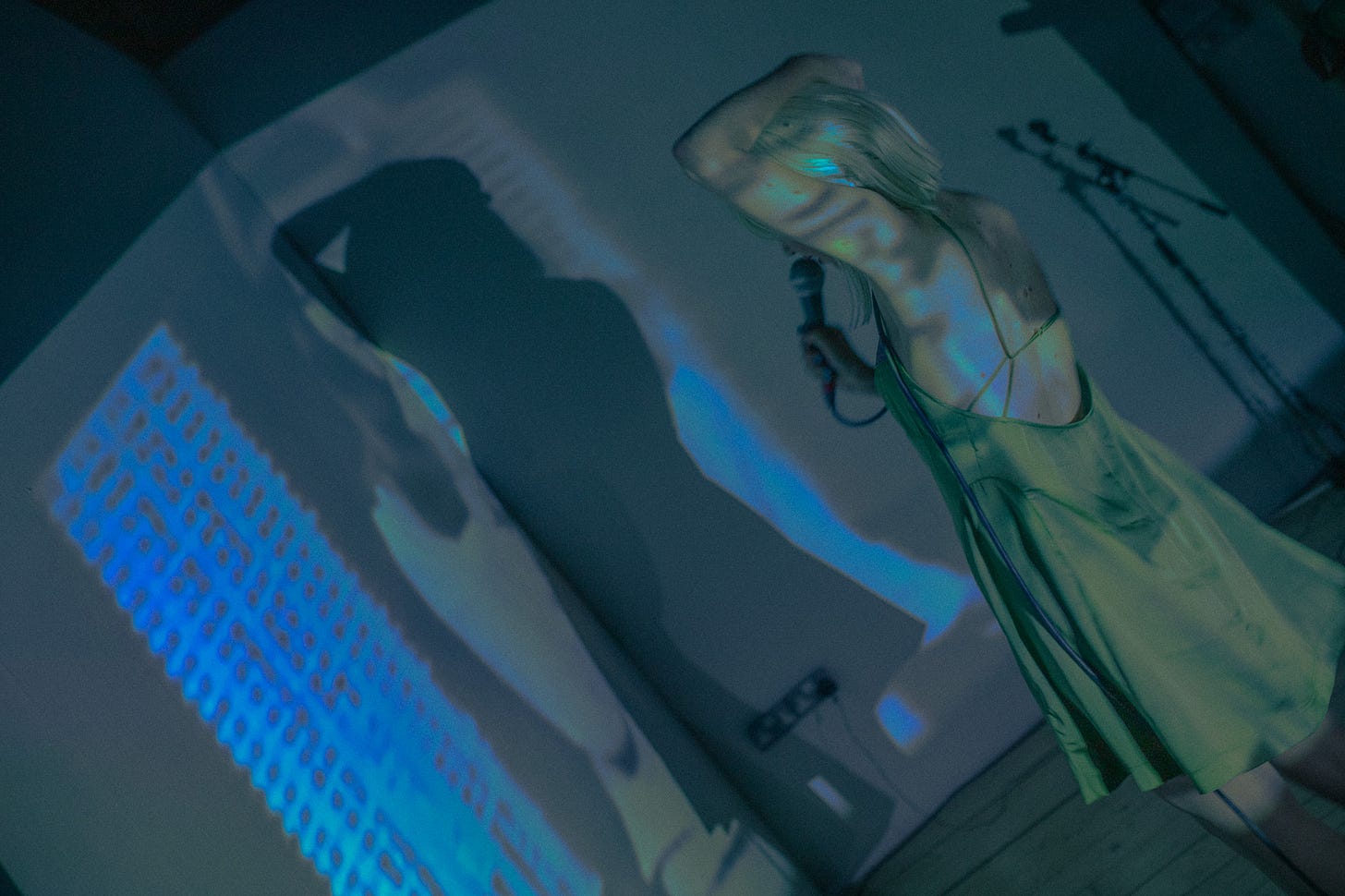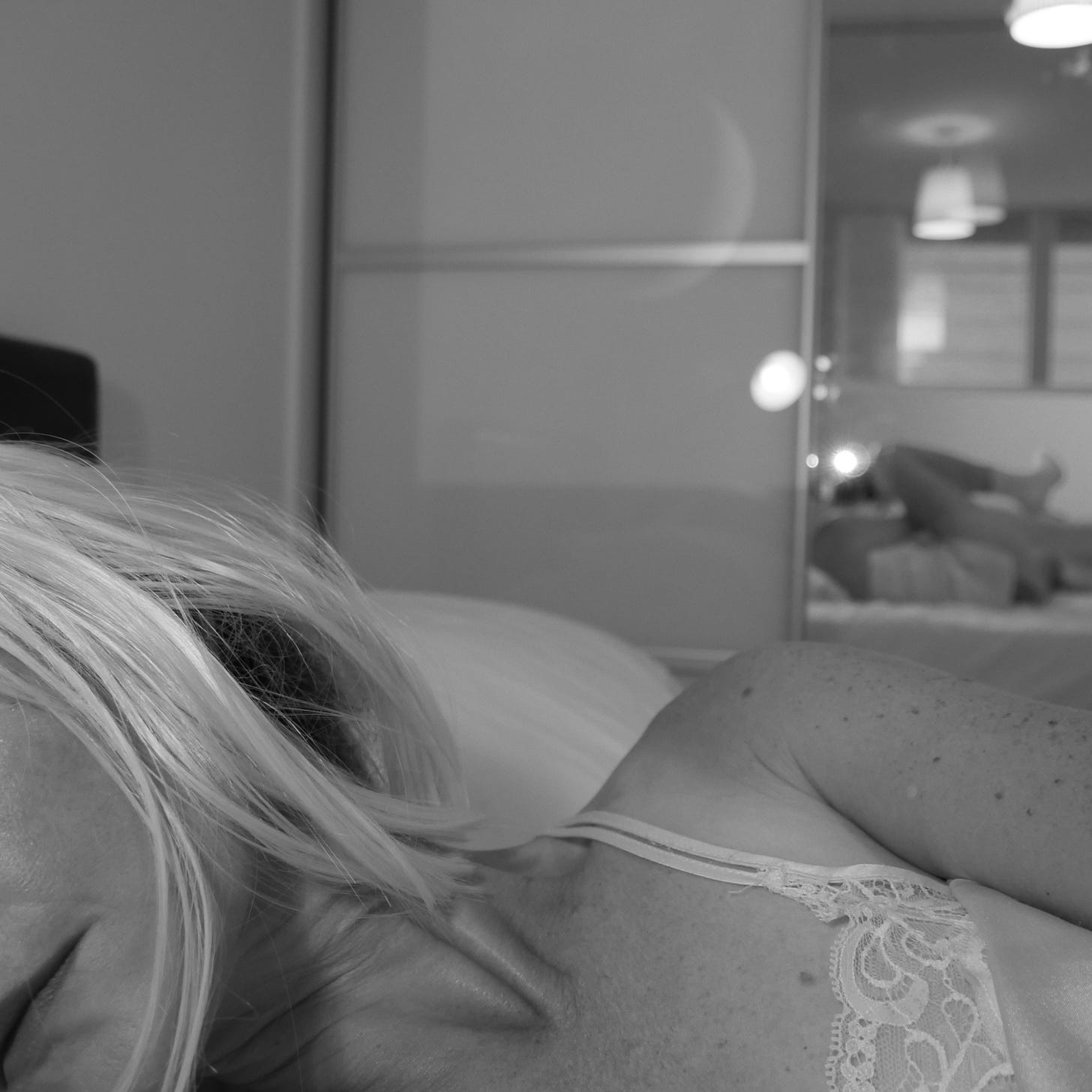What We Talk About When We Talk to Ourselves
Social media, the Spectacle, and the impulse to share
Psychoanalysis has long since revealed to us that we do not know what we want. This is why consideration of an audience prior to putting the work out there is an obstruction. Nor do the audience know what they want but need to be shown.
In Missing Out, In Praise of the Unlived Life, the pre-eminent British psychoanalyst and author, Adam Phillips (2012, p.18) writes:
It is as if, oddly, you were waiting for someone but you didn’t know who they were until they arrived. Whether or not you were aware that there was something missing in your life, you will be when you meet the person you want. What psychoanalysis will add to this love story is that the person you fall in love with really is the man or woman of your dreams; that you have dreamed them up before you met them; not out of nothing — nothing comes of nothing — but out of prior experience, both real and wished for. You recognize them with such certainty because you already, in a certain sense, know them; and because you have quite literally been expecting them, you feel as though you have known them for ever, and yet, at the same time, they are quite foreign to you. They are familiar foreign bodies.1
The last three words hover in Helvetica then float around the room in a type of celestial assonance. It is gone seven. The scaffolding is leaning in. Violet laughter runs down the road.
The windows were recently replaced when I was away in Spain and on my return there were two tiny, shiny keys sat on the ledge. When I tried them in the door, neither fit.
Tipsy voices slur down the street and the moon pours strawberry light upon the cats in the bins.
The house across the road must be worth a million, at least. She does the same thing every night, just stands there by the kitchen window, radiant under a sunset lamp.
I took a flight from Stanstead to Málaga, then a car up into the Axarquía range. It was 2011. I was two-thirds of my way through my MLitt.
I’d got this manuscript, of sorts, called The House Sitter. It was about a house sitter who was never there.
The retreat was owned by a poet I knew in Bermondsey who worked for large publishing house and put on an open mic for new readings in a pub I’d go to once a month. He also ran a ‘finishing school’ for would-be writers or so my friend said. Cost a lot, I remember thinking: Imagine enrolling on that? Writers, everywhere, all of whom think they can write, and worse still, want to talk about it over a pint.
It was late summer, in Comares, and 38 degrees was the norm. I’d got into the habit of leaving the house, around eleven, and walking up the winding hill to the small village at the top, by the cemetery. There wasn’t much to do, but people watch, and there weren’t many people.
As I closed the kitchen door, one morning, I called out to the house sitter. The kettle on the stove was still warm. I wondered how she’d got this gig, and whether I could get a similar one.
There was a white post box at the end of the track, made of metal, slightly crooked and rusted from years of weathering. I reached inside and pulled out a letter. Encased in the envelope was a small, oblong object. I took it back in the house and popped it on the side of the kitchen table. Shut the door to.
As I knew the owner, I had a deluxe room with a view of the valley and a private balcony. The stars at night were incandescent. Night truckers would wind by into the early hours and the valley dogs howled to each other throughout the night. The lights from the houses were patterned in the valley like a jewel necklace thrown down from above.
At the top of the hill was a cemetery.
The headstones were all numbered accordingly. Each had photographs of the dead, rendered in sepia. Inside the glass cases were assortments of trinkets and odd souvenirs none of which made any sense. Why would someone put that in there? And I hope no one puts anything like that in there when I’ve gone.
Whenever I passed the pueblo blanco, the old women would appear, their faces shrouded in fabric:
“Psssst, vamos, vamos. Pssst, vamos”.
(I’d always liked the word vamos but that kind of killed it for me.) The sun would black out their faces, wringing their eyes into raisins.
One day, I took a wrong turn down the hill on the way back down, getting led astray by a sign for a dog shelter and ended up stuck amidst the cacti. Yet, it was just gone noon, and everything was illuminated. The edges of the giant leaves cut liquid shapes in the air and air was permeated with the scent of night-blooming plants pollinated by moths.
Vespertine blooms.
I reach out for my phone but it is in the other hand. I tend to leave it on ‘quiet time’ all the time, these days, with the little crescent moon illuminated in the top corner of the screen.
Žižek is wearing an orange vest telling us that the path to love is through trash. I believe him. The first thing I get asked about Space Junk is why I called it that. I will say more about this as I write.
In her apparently spontaneous, stream-of-consciousness, yet carefully edited, brief meditation on capturing the immediate present, Água Viva, the Brazilian author, Clarice Lispector, asks the reader “Do you feel? I feel” (Lispector, 1990, p.39).3 She avoids novelistic conventions, foregoing chapters.
A CONVERSATION WITH MYSELF
Myself: Marion Milner writes in her diary: “17th. What ever you do, do it like hell”.4
Me: What, carry on talking to myself on here?
Myself: Where?
Me: Social, where do you think?
Myself: It’s up to you what you do, I don’t care. Get a life!
Me: I’m only asking, for God’s sake.
Myself: You’re focusing on it too much, that’s all.
Me: Focusing on what?
Myself: The fact that you’re talking to yourself, online, again.
Me: I’m obviously not only talking to myself or you wouldn’t know anything about it, would you?
Myself: I only know about it because you won’t stop going on about it. Besides, it’s essential for your ‘career’. You need to be Google-able. We’re in the reputation economy, don’t you know? You need stats and followers and tweets and comments and likes and hearts and thumbs up and shares and subs and re-stacks, all the time. Or you won’t exist.
Me: FYI, the only reason I even stay on the gram is ‘cos Zach Dawes views all my stories.
Myself: Whatever.
END OF CONVERSATION WITH MYSELF
In an interview with Kammineni, Žižek reiterates: “Love is a catastrophe. It’s a crazy illness. Love ruins your life. But I am very sad when I am not love” (2010, p.8).5
The most beautiful thing I ever saw was the sea, the sea being carried away, out of sight. The blueness of it hitting my retina just before dusk. Blazing away for days whilst I was sat with a plate on my lap watching TV. That is what we grew up on, TV.
I was all sold on Springsteen and aggrieved that I was not BORN IN THE USA. But now I can see that it was exactly my not being BORN IN THE USA but in some non-descript town in the East Midlands with a minor football team that could never have dreamed of making into the premier league, that made me who I am and which got me to where I am today, which is precisely nowhere.
A herd of buffalo run across the 60-Inch flat screen TV and my phone screen is cracked in several places, holding its own, and my mother remains on ‘watchful waiting’ with her CLL, and the garden is full of blue flowers, and we never had a garden that she didn’t make lovely when we were kids with topiary and giant daisies, and shrubbery and perfect stripes running up and down the lawn and there was never a photo of her where she wasn’t doing something, hanging out the washing, ironing, washing up, weeding, stripping the walls, sewing, decorating, running around looms, checking tights, doing her back in and having a break-down in the loo, before getting laid-off. All that work.
The coffee is good. A Monstera breathes down my neck. Monsteras get everywhere, even into your dreams.
“A Herd of Buffalo Run Across the 60-Inch Flat Screen TV” is track 14, on Space Junk. The song was built around a scripted voice over I wrote in advance to encompass my frustration with UX, and the surreal freedom entailed in the title.
Original Lyrics - "A Herd of Buffalo Run Across the 60-Inch Flat Screen TV", track 14, Space Junk (Talbot, 2023) Are you sure you want to delete this? Unrecoverable. Ads. After fucking ads. After ads. After fucking cookies. After fucking. Accept. Or deny. Or how about you shut the lid and get out of the house for a bit? What domain name should I chose? Sun flooding the table. GO DADDY throws up: .blog; .link, .digital, .me, .biz, .net, .shifts, .io, .tech, .uk, .avocado, .best, .black, .band, .green, .LGBT, .best, .give, .hip-hop, .movie, .letter, .social, .show. Fake pink chrysanthemums splayed about the joint. (At least they’ll last longer than the roses.) Came down, one morning, to find their heads on the table top. That’s the trouble with roses. Solid aspect. Verdant lawn, room for a pool. A herd of buffalo run across the 60-Inch Flat Screen TV. Low-sugar granola, in between the teeth. EAT NATURAL. Daily Wash or Full Cycle? Sun-kissed wrists, scented with Sicilian lemon and almond, some Greek brand from TK Maxx. Made in China. Bonne Maman. Monosodium phosphate. Bacterial culture. Iodine. Vitamin D. Vitamin B12. Watched the movie Heat (1995) last night, tried to remember where I watched it before. Winchester - 2004. GUARDIAN REVIEW. DO YOU ACCEPT? YES, I’M HAPPY. But am I really? Are you? Pacino, and de Nero’s, first to do, so to speak. De Nero. Shot in the chest. Noooooooooooooooooooooooooooooooooooooooooo. Twice. LOS ANGELES AT NIGHT. The beauty of it. Eternity - at a touch. The City of Angels. Neon fever. The air – warm – no matter. ARE YOU SURE YOU WANT TO DELETE THIS. CANNOT RECOVER IT. Black Mustard. Monterey Cypress. Public Enemy Number 1. Subtropical desires. Eucalyptus moods. Your blooms are not your own. Mulholland Drive. Lynch and Wenders. Fuchsia hypnosis. Can never spell it right, like Nietzsche. Volatile. Sporadic - June is, less. Pineapple Express. The thing about kids is – they’re violent, inherently. Then they grow out of it, develop RA, and call it progress. Latent anger. Remember how she headbutted that little girl, in the grounds, on their wedding day? Her face, a moment or two, before she did it.
Phillips, A. 2012. Missing out. In praise of the unlived life. London: Penguin.
Žižek & So On. 2020. Slavoj Žižek: The path to love is through trash. [Online]. [Accessed 15 September 2023]. Available from: http://youtu.be/eQmc039N0jE
Lispector, C. 2014. Água viva. Translated by S. Tobler. London: Penguin.
Milner, M. 2024. A life of one's own. [Online]. London: Routledge. [Accessed 17 November 2023]. Available from: https://doi-org.ezproxy1.lib.gla.ac.uk/10.4324/9781003475514
Kammineni, B. 2010. Interview with Slavoj Zizek-January 7th, 2010, Hyderabad, India. [Online]. [Accessed 12 November 2023]. Available from: https://www.academia.edu/2580603/Interview_with_Slavoj_Zizek_January_7th_2010_Hyderabad_India?auto=download
‘Love’ as an “Event” is critiqued in: Žižek, S. 2014. Event: A philosophical journey through a concept. London: Melville.






Nice writing makes me want to appreciate the small things. P.S. I love the movie Heat.